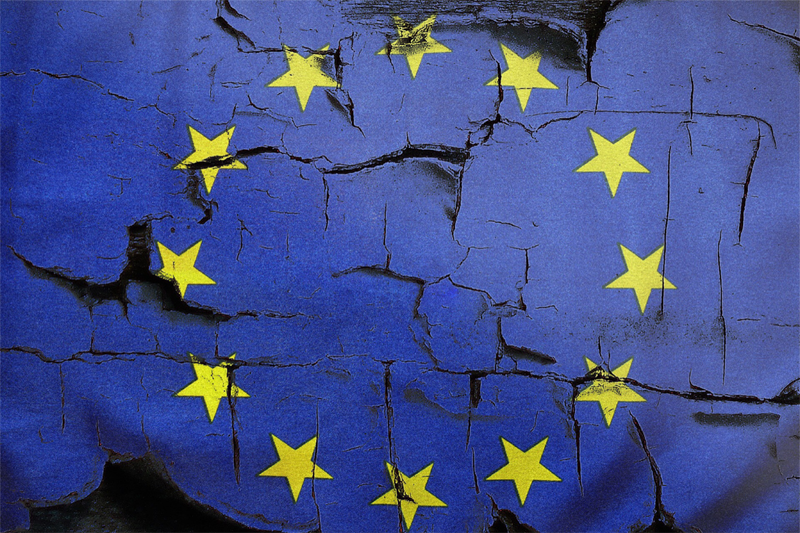We’re stuck with Brexit so now’s the time to get on with creating a future that our companies and families can thrive in. The ongoing stagnation of negotiations and lack of vision for the post-March 2019 era is bad for everyone, says Mr. Loadlink.
I didn’t vote to leave the European Union, but that’s not the point. This blog isn’t going to bewail at the 23 June 2016 referendum result, nor am I remorseful that just a minority of the 51.9% of Leavers didn’t vote differently to swing it the other way. The EU had its imperfections and it needed improvements, I accept that, and if most people felt the best way to deal with it is leave the table of jurisdiction and debate, then I respect the decision.
However, what really takes the jam out of my doughnut—or flicks the juicy cherry off my Belgian bun—is the debacle we find ourselves enduring now.

What does Brexit have in store for us?
If Brexit Day is in your diary, 29 March 2019 will either loom like a cliff edge or represents the gateway to a utopian new era. Either way, it’s in our collective interests that when the clock ticks over to 11:01pm on that night, the divorce issues and other matters have been settled between the EU and the UK to a point where we can continue to flourish as global, trade-dependent businesses, through the transition period to the end of 2020, and beyond.
The worrying thing is, both sides are trying to agree on the outline of future relations on travel, trade, security, and everything else, in just the next six months. And we’re off to a lethargic start to say the least. Sacré bleu!
Cast your mind back to another close vote in 2005, when London won a two-way fight with Paris by 54 to 50 to host the 2012 Olympic Games. That gave us seven years to organise a sports event and, while it was a spectacle to behold, even the well-oiled machine responsible for its delivery wouldn’t have called it a stroll in the Olympic Park.

I can’t help but think Brexit negotiations with the EU are going round in circles.
Breaking the mould
The International Olympic Committee (IOC) gives their host cities plenty of notice because events of this scale take time to organise. And that’s even considering the fact that there are many successful blueprints throughout history to work with. Further, there are strict rules of competition to adhere to. With Brexit, we’ve never done it before, there are no rules, and we’ve got just a few months to get it right. Wish us luck!
Whether there will be appreciable changes to our business and personal lives at the moment we walk away from the EU depends greatly on the negotiations in the months leading up to the big day. We could find ourselves part of a largely seamless transition or, if they fail to come to any decisive deal, a much more hair-raising Brexit will ensue. It could be like the Olympic diving event taking place into the same pool as the water polo, with the newly introduced golfers trying to tee-off whilst sharing the same springboard—simultaneously. I can’t help but picture a scene from the book, Where’s Wally?
It’s no wonder therefore that car giant BMW recently followed plane manufacturer Airbus in warning about the consequences of Brexit uncertainty. And it’s that ambiguity, ambivalence, unpredictability, doubtfulness, inconclusiveness, mystification, perplexity, and questionableness, that I principally want to address in this article. When have you ever heard a favourable financial statement in a company’s quarterly review and heard any of those words mentioned? Any oscillation gets business nervous and right now, many big firms are shaking in their boots.

BMW are among the latest big companies to express concerns over a lack of clarity on what the UK will look like post-Brexit.
Driven mad
My stomach turned when I heard BMW high-flyer Ian Robertson talk about “contingency plans” but applaud anyone pleading with our negotiators and the process as a whole to get a handle on the Brexit deal. Remember, the customs union brings together the EU’s 28 (soon to be 27) members in a duty-free area, in which they pay the same rate of duty on non-EU goods. Other business leaders have expressed their desire to stay in the customs union even after Brexit unless there is a clear, concise, robust alternative. Prime Minister Theresa May, however, has ruled that out.
The BBC recently reported that about 50% of the UK’s total $1.1 trillion trade in goods last year (2017) was with the EU.
As a small business owner and proud member of the UK’s, indeed the world’s, small and medium-sized enterprise (SME) community, I am fearful that we lack a voice in these dealings. Brexit is a deal-or-no-deal scenario but either way, we’re out. I listen to politicians and other commentators at the moment and I wonder if they realise that.
This isn’t something we can postpone, or ask for an extra day to check our spelling and grammar. Brexit is coming for us all, however we voted in the referendum. Many companies, like my own, import and export parts and products to / from our biggest market—Europe—and all over the world. Such activity is our lifeblood; we can’t setup on Havant High Street and start trading to passers by.
Mrs. May warned us recently, “no-one will get everything they want” out of negotiation but remains confident a deal can be done. What does that mean, especially when such optimism (is it even optimistic?) is tempered with reality checks over less access to the single market and warnings over the complexity of the task in hand. Surely we should be beyond that. We knew Olympic archery would take place at Lord’s cricket ground over two years before the first arrow would be fired for goodness’ sake. They only had to put a couple of targets up and pace out the right distance.

Much of what I hear from politicians is off target.
Splitting up
Breakups are tough, as Brexit is proving.
Politicians are charged with the responsibility of getting us to dry ground, which does little to settle our trigger fingers in business. Again, I’m not making any points about political persuasions but the UK government of the day is bickering over internal differences, making a no-deal scenario all the more likely, and we’re not seeing any guidance, leadership, or resolution from across the benches.
Jean-Claude Juncker, president of the European Commission, has spoken of his discontent over the “split” government’s cabinet, which should serve as a massive wakeup call to fall into line behind a plan. We’re as devoid of leadership at the top of British politics as we’ve been in my lifetime, at a moment when we need it most.
The UK entered the EU in 1973, as did Denmark and Ireland. It means that 45 years of trade and customs; commerce; medical and scientific research; security matters; military agreements; and much more, stands to be undone. I hope we don’t have to suffer the grim possibility of a physical embodiment of Brexit in the shape of a hard border, complete with customs posts and police, separating Northern and Southern Ireland, which will become EU and non-EU places. I’ve never much liked borders or walls.
When I was on holiday in Croatia earlier this month (June), I watched a World Cup match with Croats and representatives of many different nations. We drank and discussed the international language of football. It wasn’t complicated—Brexit is, I get it—but the beautiful game is symbolic of so much in life. My company, Straightpoint, makes load cells that our global partners sell into their local markets all over the world. It too is a beautiful thing. We want to carry on doing business and making the lifting industry a safe place. I hope Brexit will let us, especially at a time when the internet has made it easier for us to be more united than ever before.
Mr. Loadlink

There’s the beautiful game, then there’s Brexit.
